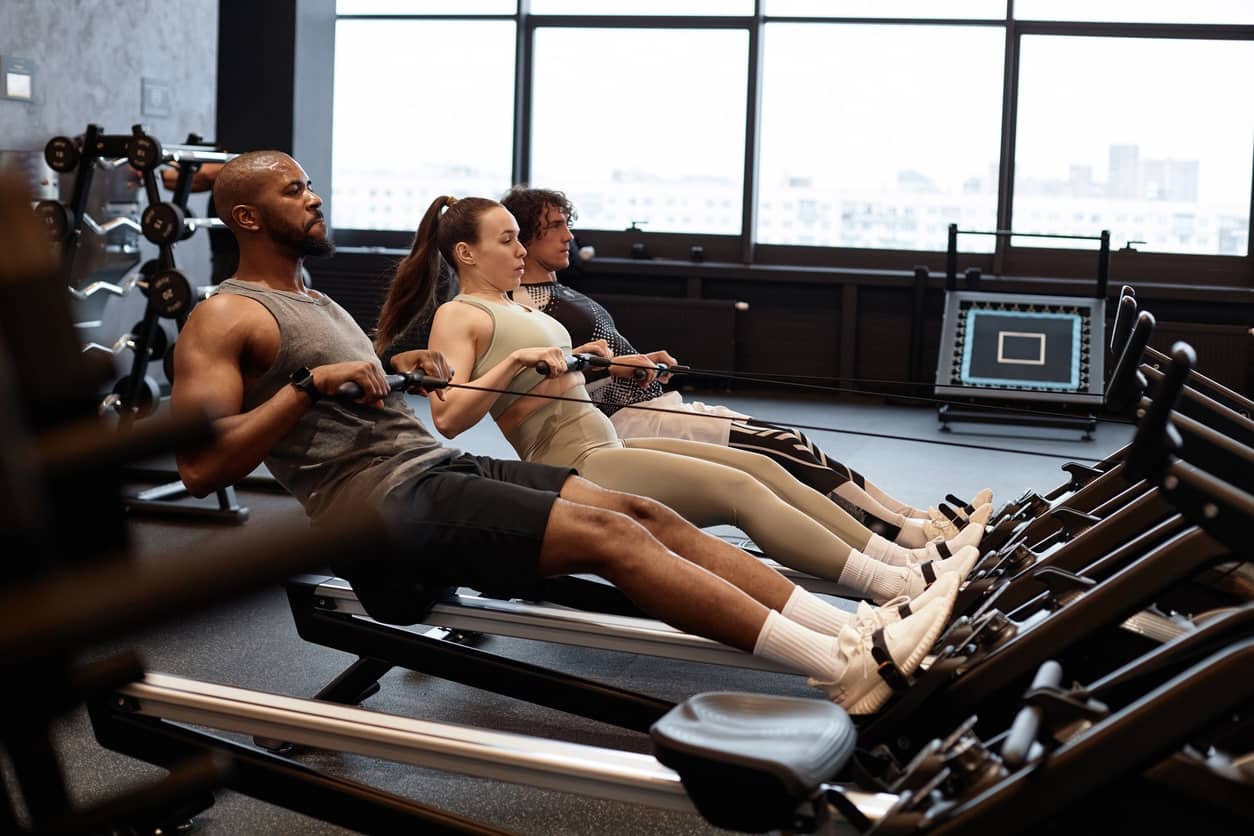The National Sector Partners Group (NSPG) has issued the following response to the Active Lives Adult Survey from Sport England, published today (24 April)
The latest Active Lives Adult Survey shows a continued and steady increase in physical activity levels across the country and is a further reminder of the essential role the sport, recreation and physical activity sector plays in supporting the nation’s physical activity levels.
However, despite the headline numbers, much more needs to be done to ensure more people can reap the benefits of engaging in physical activity and ensuring our sector can play its fullest role in driving this uptake.
As evidenced by the National Sector Partners Group (NSPG), the UK is currently 11th out of 15 comparable European nations for activity levels, and small increases such as this are not enough to make the UK the most active nation in Europe, with all the associated health and economic benefits that this would bring.
Our sector is responsible for generating £107.2bn in social value in England each year, including £10.5bn in secondary value by reducing cases of disease and relieving the huge pressure on health and social care every year.
Studies show that physical activity helps to prevent 20 chronic conditions, including type 2 diabetes, obesity, heart disease, many types of cancer, MSK conditions, depression and anxiety, and dementia.
However, the new findings show that significant inequalities remain in physical activity levels across demographics and an alarming decrease among younger people aged 16 to 34. It is clear the current policy approach is failing to deliver meaningful increases in physical activity.
The outcome of the Government’s upcoming Spending Review, due to be announced in June, is pivotal to ensure the sport, recreation and physical activity sector can drive up these levels and provides the Government with an opportunity to demonstrate the value it places on the nation’s health and wellbeing and reducing the pressure on the NHS
The NSPG remains committed to working at pace with this Government to ensure it delivers an ambitious and practical strategy for increasing physical activity levels among people of all ages, abilities and backgrounds for the sake of the nation’s health, wellbeing and economic growth.
About the National Sector Partners Group
*The NSPG is formed of:
- Active Partnerships
- The Chartered Institute for the Management of Sport and Physical Activity (CIMSPA)
- The Sport for Development Coalition
- The Sport and Recreation Alliance
- ukactive
- The Youth Sport Trust.
Through our collaborative work as sector partners, we aim to engage decision-makers to improve the operating landscape for the sector and embed sport, recreation and physical activity as a key contributor to wider public policy objectives.
Huw Edwards, CEO of ukactive, said: “These figures show a slight increase in physical activity levels across England but as a nation we must demand more to ensure people from lower socio-economic and ethnic minority groups are supported to be active.
“For the second year running, fitness activities continue to drive activity levels and when combined with swimming figures, mean that gyms, pools and leisure centres provide the biggest source of activity other than walking.
“Fitness activities have seen an increase of 1.6% on the previous year (904,000 more adults), with participation in weights sessions (up 0.6%), gym sessions (up 0.9%) and the use of exercise machines (up 0.4%) all seeing significant growth.
“Combined with our recent market report which showed a record number of gym members in the UK, these figures provide irrefutable evidence of the essential role our sector is playing in driving physical activity levels, and demonstrate the growing demand from consumers to improve their physical, mental and social wellbeing through exercise in these spaces.
“Our members have driven this growth despite continuing to face significant operational pressures in the form of high energy costs, staffing, and the cost-of-living, doing all that they can to prevent communities at risk of losing vital access to support.
“The Spending Review represents a clear opportunity for the Government to recognise our sector’s potential and put in place the measures to capitalise on consumer demand, reduce our barriers to growth and turbocharge physical activity levels. Doing so would ensure the physical activity sector is a solution to help transform our nation’s health and economic growth.”
Andy Taylor, CEO of the Active Partnerships National Organisation, said, “It is positive news that the number of physically active adults is now the highest on record.
In recent years, the Uniting the Movement strategy has really galvanised the sport and physical activity sector, with everyone, including the Active Partnerships network, focused on transforming communities through sport and physical activity and supporting more people to live active lives.
“However, we know that stubborn and significant inequalities still exist, with a person’s age, gender, ethnicity, socio-economic group, the place where they live, and whether they have a disability or long-term health condition all impacting on how physically active they are.
Our network, alongside local and national partners, including those who are also members of the NSPG, will continue to work with communities to tackle these inequalities, to help people move more.
“This is vital work because we know that people who are more active live happier and healthier lives, with benefits for both their physical and mental health.
But the positive impact of physical activity doesn’t just benefit individuals, it also benefits the country, as economic growth is intrinsically linked to the health and activity levels of the nation.
“Movement, physical activity and sport boosts our health and economic growth, as preventing and helping to manage illness reduces pressure on the NHS and a more active population leads to a more productive workforce. It is therefore crucial that the sport and physical activity sector is effectively supported and properly funded.”
Hitesh Patel, Executive Director of the Sport for Development Coalition, said, “It’s clearly positive to see the record uplift in physical activity levels amongst a range of population groups in the latest set of Active Lives Survey figures.
“It is concerning, though, that societal inequalities continue to negatively impact participation amongst certain demographic groups, such as those who are ethnically diverse, from lower socioeconomic backgrounds, or living in the most deprived communities.
“Sport for development organisations from across the Coalition network play a vital role in using sport to engage with such groups and communities to achieve a wide range of positive social outcomes and, with a spending review on the horizon, there is an opportunity for the Government to strategically strengthen its support to our sector to create a more equitable society and boost economic growth.”
Lisa Wainwright MBE, CEO of the Sport and Recreation Alliance, said, “The Alliance welcomes the increase in the number of adults taking part in sport and physical activity.
“However, a number of inequalities remain stubbornly persistent, including activity levels among women relative to men – which have still not recovered to their pre-pandemic peak; those from less affluent areas and Black, Asian or minority ethnic groups are still less likely to be active.
Crucially, there is also significant variation in activity levels depending on where someone lives, making clear more needs to be done to ensure everyone has the same opportunity to play sport and be active.
“It is encouraging that there has been an increase in volunteers giving up their time to support sport and physical activity – as we know, they are the lifeblood of the sector.
However, these numbers are still significantly down in the long term with 1.7 million fewer volunteers than in 2016/17.
As the Alliance has repeatedly made clear on behalf of its members, many of whom are concerned about the impact of further regulatory burden and time spent on administrative duties, the Government must do more to ensure we support volunteers and the wider workforce.
“Building on this latest set of figures, we need an urgent and ambitious strategic plan from the Government to harness the power of the sport and recreation sector, including our members who are already doing fantastic work driving up participation across the country.
However,this can only be achieved with a strong commitment from the heart of Government to invest more in our sector.
In the upcoming Spending Review, the Government has a vital opportunity to demonstrate its commitment to the sector and the role it can, and must, play in getting people active while forging a more prosperous and healthier nation.”
Tara Dillon, CEO of CIMSPA said: “It’s encouraging to see that adults’ overall activity levels are the highest on record and we welcome these statistics from the Active Lives Adult Survey.
“As shown in the report, tackling inequalities amongst our communities unfortunately continues to be an ongoing challenge, and there is more work to be done, but we are dedicated to addressing it – our local skills work is vital to this challenge with bespoke local skills plans to support the workforce in meeting the needs of their respective communities.
“This report shows that the sport and physical activity sector plays an important role in our daily lives, and it’s imperative that this government recognises the contribution that our sector and its workforce make to the success of our society.
“I am extremely proud of the hard work and dedication that our sector workforce has given to encourage our nation to become more physically active, which will ultimately contribute towards a healthier and more economically active country.
“I look forward to seeing how we can continue collaborating with neighbouring sectors and the outcome of the upcoming Spending Review to continue this momentum.”





